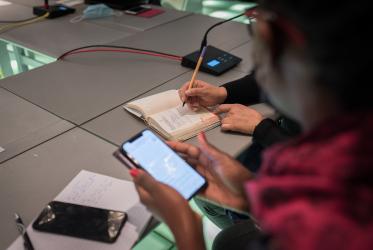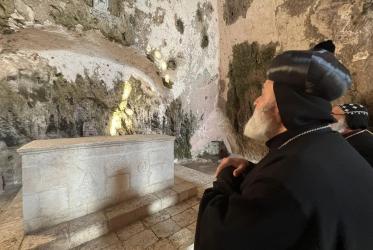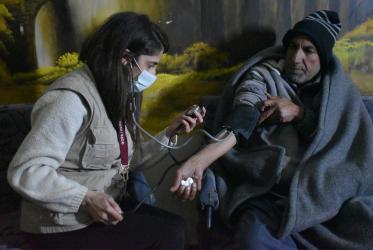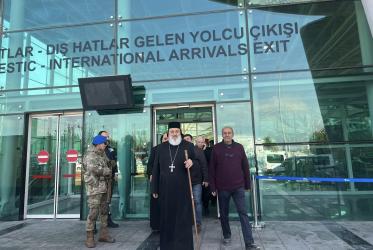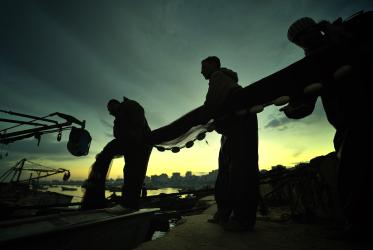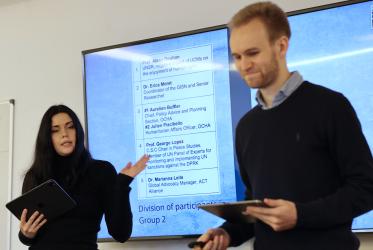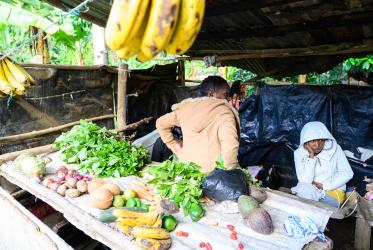Displaying 101 - 120 of 745
HIV and AIDS Civil Society Networks and the Faith Sector
Lessons Learnt from Strategic Engagement in India, Dominican Republic, Indonesia, and Jamaica
31 January 2023
Pandemic and pedagogy: what are the valuable lessons?
21 December 2022
On World AIDS today, tackling inequalities is a matter of justice
02 December 2022
WCC invites all to World AIDS Day prayer service
28 November 2022
